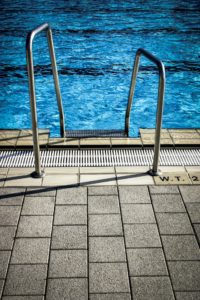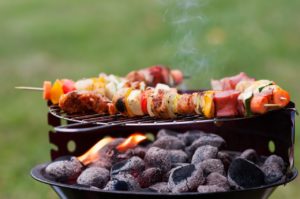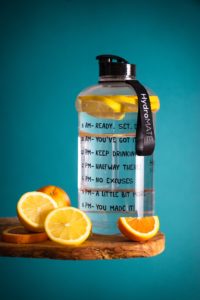June 21, 2021
Today marks the first official day of summer and as the schools are getting out and everyone is starting to enjoy the warm weather, this is a great time to remember a few important summer safety tips to keep everyone safe.
Heat stroke and other heat related illnesses.
Heat stroke, heat exhaustion and heat cramps are a few heat related illnesses that are common during the summer months. Heat stroke is the most severe of the three and requires immediate medical attention. Causes of heat stroke typically come from exposure to hot environments where the core body temperature can rise and is often a result of prolonged exposure in this type of environment. Strenuous activity such as working out or doing physical labor in hot weather can also lead to heatstroke.
Common signs of heat stroke are high body temperature, fast pulse, nausea, confusion, dizziness, headache, passing out, and hot, red or dry skin. If someone you know is experiencing heat stroke, start by moving them to a cool shaded area, removing excess clothing, and applying cool cloths or ice packs to the skin to help cool faster. If you are outside you can also use a hose to cool the person off. You should seek medical attention immediately by calling 9-1-1.
While this all sounds scary, the good news is that heatstroke is 100% preventable! Take these simple actions to help prevent heatstroke, and learn more about the risk factors that might make you more susceptible here.
- Drink plenty of fluids such as water and avoid sugary drinks.
- Don’t overdue it during the heat of the day (11am – 4pm).
- Wear lightweight and light colored clothing that breathes.
- Wear sunscreen to prevent sunburns.
- Watch the weather and know when to stay inside.
- Listen to your body. If you are starting to feel unwell, take a break, seek a cooler area and drink some water.
Water Safety
 A great way to cool off and have a little fun is go swimming at the local pool or take a day trip to a lake or the ocean! Whether you drive to the water or stay right in your backyard, it’s important to know about water safety so that you, and everyone else can make the most of your day.
A great way to cool off and have a little fun is go swimming at the local pool or take a day trip to a lake or the ocean! Whether you drive to the water or stay right in your backyard, it’s important to know about water safety so that you, and everyone else can make the most of your day.
- Take swimming lessons. Young children should be taught to swim in order to help prevent drowning and to learn about proper water safety. Looking for swimming lessons in Waterbury? Check out the local YMCA and pick the right class for your little ones. Not from the area? Check with your local gyms and other fitness centers to find classes for all ages. Local camps usually have swimming lessons available to campers as well. Adults can also find swimming lessons, it’s never too late to learn how to swim!
- Don’t leave children unattended. It only takes a moment for a child to drown, even in something as small as a kiddie pool. When you are done using small pools, they should be drained and flipped over to prevent accidents. If you have a larger pool where this is not possible, make sure there is proper fencing to keep children out of the pool area.
- Wear a life vest. People who are not good swimmers should wear life vests and should never swim alone. Swimming in areas that have lifeguards is highly recommended. If you are going to swim alone, let someone know where you will be and how long you expect to be there.
- Know CPR. The most important tip is to know how to give CPR and when to call 9-1-1. In the event that a child or an adult is drowning or has another water related incident, it is important to know proper CPR. 9-1-1 should be called immediately.
Prevent Sunburns
With fun in the sun, also comes sunburns. We’ve all had them and everyone can agree that they are no fun on any level. Outside of the discomfort of getting one, sunburns increase the risk of skin cancer and other issues like heatstroke.
How to help prevent a sunburn
- Avoid the sun during peak hours of the day which are 11am until 4pm. If you are able to, seek shade during these hours.
- Wear sunscreen when outdoors and reapply frequently, especially on children.
- Wear light colored clothing. Light colors reflect the sun instead of dark colors that absorb it. This will also help keep you cooler!
- Wear SPF Clothing. Clothing with SPF protection can be purchased for people of all ages at places like Amazon, Dick’s Sporting Goods, REI, and other sporting outlets.
If you do get a sunburn here are a few things you can do to treat it:
- Find a way to cool your skin. This could mean taking a cool shower or jumping in a pool or lake to help cool your skin.
- Cover your burn. As soon as you notice a burn, get out of the sun or cover up if you can’t avoid the sun. Sit in the shade, under an umbrella, or go inside.
- Re-moisturize your skin. Put lotion on your sunburn to help heal your skin and re-moisturize it. Sunburns dry skin out, so replenishing the moisture will heal your skin quicker. Lotions with Aloe are the best for re-hydrating skin and also soothing the pain of a sunburn.
- Hydrate. Drink lots of fluids to help re-hydrate your body which will help your burn heal from the inside.
Learn more about sunburns and how it affects your skin at the Skin Cancer Foundation website.
Food Safety-
 Food poisoning is another common issue during the summer. In warmer seasons, bacteria multiplies faster meaning that food goes bad quicker. Summer BBQ’s are notorious for leaving food out for prolonged periods of time. What can you do to prevent food poisoning?
Food poisoning is another common issue during the summer. In warmer seasons, bacteria multiplies faster meaning that food goes bad quicker. Summer BBQ’s are notorious for leaving food out for prolonged periods of time. What can you do to prevent food poisoning?
- Fully cook food. Make sure that food is cooked fully by using a meat thermometer. Check out foodsafety.gov for an easy reference chart.
- Don’t let food sit out. Put away food after serving instead of letting it sit out. Food should not be left out for more than 2 hours in general and if temperatures are extremely hot, food should be put away within 1 hour of serving.
- Wash your produce. Rinse all produce after bringing it home from the store.
- Separate your meats. Keep raw meats away from eating and serving stations to prevent contamination and the risk of salmonella. If you are grilling, use a different plate once the food is cooked.
- Wash your hands! Make sure you wash your hands appropriately before cooking and eating to avoid spreading germs or cross-contaminating other foods.
- Clean your reusable grocery bags. Meat juices and other bacteria can rub off on your bags and stay there for long periods of time. Cleaning your bags ensures they will be fresh for your next shopping trip.
Stay Hydrated
 Hydration, Hydration, Hydration! During the summer months it’s much easier to get dehydrated but it’s also more important to stay hydrated. When it’s hotter out, our bodies sweat more which means we need to replenish fluids quicker. The best way to stay hydrated is to drink enough water throughout the day. Stay away from sugary drinks like soda and juices since these don’t hydrate as well as water.
Hydration, Hydration, Hydration! During the summer months it’s much easier to get dehydrated but it’s also more important to stay hydrated. When it’s hotter out, our bodies sweat more which means we need to replenish fluids quicker. The best way to stay hydrated is to drink enough water throughout the day. Stay away from sugary drinks like soda and juices since these don’t hydrate as well as water.
- Know the signs of dehydration. Signs include dark yellow urine, dry skin, dizziness, lack of sweating, rapid heart rate or heavy breathing.
- Drink before you get thirsty. By the time you start to feel thirsty, you’re already behind on your fluids for the day.
- Avoid sugary, alcoholic drinks and caffeine. If water is hard to drink, try putting berries and other fruits in your bottle to help add natural flavor and avoid the artificial sweeteners. You can also try flavored waters such as coconut water.
- Drink often. If you are planning to work out or do yard work, it’s important to drink water before, during, and after to keep your body hydrated.
- Eat water-rich foods. There are many foods out there that will help hydrate you naturally such as strawberries, peaches, watermelon, cucumbers, oranges, lettuce, zucchini, celery, tomatoes, and bell peppers. For a larger list, check out healthline.
Dehydration can also increase your risk for developing heat stroke and other heat related illnesses, so make sure you stay hydrated this summer!
Vacation Safety
Summer means travelling, which also means your home is empty and a target for burglars. There are a few simple things you can do so that it will appear that you are home when you’re actually vacationing on a beach or enjoying Disney World!
- Yard Maintenance. Mow your lawn before you leave and trim your hedges. A well maintained yard is a natural deterrent to burglars because it means someone pays attention.
- Lock it up. Make sure all your windows, doors, garages and cars are closed and locked. This might sound simple but it’s easy to get caught up in the chaos of getting out the door and forgetting to lock something or close a window.
- Leave a light on. Set lights on timers so it appears someone is home or leave a light on in one room of your home.
- Don’t post on social media. This is a big tip. Everyone wants to share their fabulous vacation with their friends, but that’s a great way to advertise to burglars that you aren’t home and your house is empty, especially if you don’t have any privacy settings. Wait until you return to post about your trip.
- Check-in. Have a family member or trusted friend check in on your house while you are away once or twice if you are going to be gone for an extended period of time. Seeing someone coming and going is also a deterrent for burglars.
- Hide your valuables. This doesn’t mean hide them in your dresser drawer or the back of your closet. Find places that are not common hiding places and are harder to get to. Take laptops and other easily accessible technology and put them somewhere safe as those are easy to grab and go. If it’s not easily accessible, burglars will usually give up.
Pet Safety
 Taking care of our pets is just as important as taking care of ourselves and our children. The heat affects animals much like it affects humans.
Taking care of our pets is just as important as taking care of ourselves and our children. The heat affects animals much like it affects humans.
- Don’t leave your pets in hot cars! Cars can reach up to 120 degrees even with the windows cracked. You wouldn’t want to sit in a car that hot, so don’t let your pets sit in the heat! Your pets are happier at home.
- Hydrate and stay cool. Make sure that your pets have plenty of water to drink and a cool space to hang out in. If you are out and about with your pets, bring a travel container and water so that your pet can take a break and refresh themselves.
- Avoid Hot pavement & peak hours. Avoid walking dogs during peak sun hours and on extremely hot pavement. Their paws can burn which is painful for them and requires medical attention. Try taking them to a park or walking trail where it will be cooler or walking them early in the morning or in the evening when it starts to cool down. Remember that if the pavement is to hot for your own bare foot, it’s too hot for your pets!
- Pets can overheat too. Just like humans, animals can overheat. Knowing the signs can help prevent this from happening. If your pet has an elevated temperature, excessive panting, drooling, vomiting, collapses or has a seizure, you should call your vet right away and try to cool them down.
- Summer Activities. Find new ways to stimulate them that will help keep them cool this summer. Try filling a plastic kiddy pool with water and allowing your dog to play in it. Use a hose to spray water and watch them have fun for hours. Swimming in lakes or wading in rivers is also a great way to get them exercise without overheating. This is a great way to entertain them and keep them cool at the same time.
For more helpful tips on pet safety, please visit the ASPCA website.
We hope these tips will help keep you and your loved ones safe this summer!
The StayWell Health Center Team
 A great way to cool off and have a little fun is go swimming at the local pool or take a day trip to a lake or the ocean! Whether you drive to the water or stay right in your backyard, it’s important to know about water safety so that you, and everyone else can make the most of your day.
A great way to cool off and have a little fun is go swimming at the local pool or take a day trip to a lake or the ocean! Whether you drive to the water or stay right in your backyard, it’s important to know about water safety so that you, and everyone else can make the most of your day.  Food poisoning is another common issue during the summer. In warmer seasons, bacteria multiplies faster meaning that food goes bad quicker. Summer BBQ’s are notorious for leaving food out for prolonged periods of time. What can you do to prevent food poisoning?
Food poisoning is another common issue during the summer. In warmer seasons, bacteria multiplies faster meaning that food goes bad quicker. Summer BBQ’s are notorious for leaving food out for prolonged periods of time. What can you do to prevent food poisoning? Hydration, Hydration, Hydration! During the summer months it’s much easier to get dehydrated but it’s also more important to stay hydrated. When it’s hotter out, our bodies sweat more which means we need to replenish fluids quicker. The best way to stay hydrated is to drink enough water throughout the day. Stay away from sugary drinks like soda and juices since these don’t hydrate as well as water.
Hydration, Hydration, Hydration! During the summer months it’s much easier to get dehydrated but it’s also more important to stay hydrated. When it’s hotter out, our bodies sweat more which means we need to replenish fluids quicker. The best way to stay hydrated is to drink enough water throughout the day. Stay away from sugary drinks like soda and juices since these don’t hydrate as well as water.  Taking care of our pets is just as important as taking care of ourselves and our children. The heat affects animals much like it affects humans.
Taking care of our pets is just as important as taking care of ourselves and our children. The heat affects animals much like it affects humans.